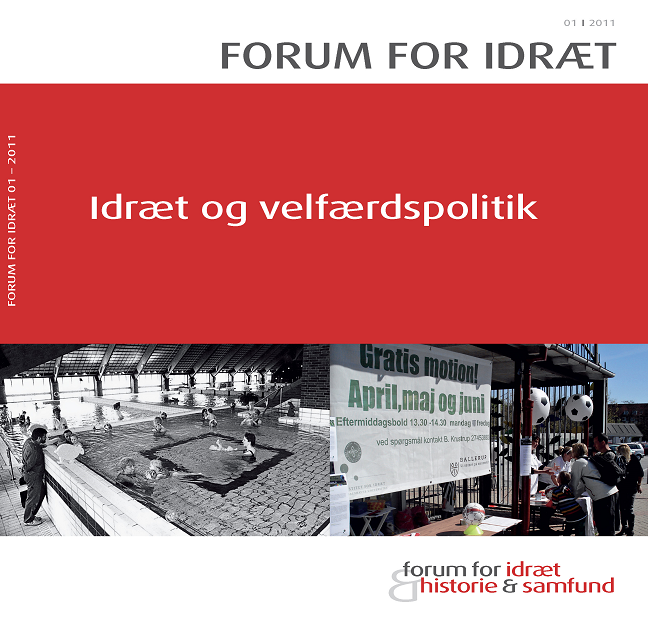Hvor skal de foreningsløse børn gå hen og dyrke idræt efter skoletid?
DOI:
https://doi.org/10.7146/ffi.v27i1.31615Nøgleord:
børn, foreningsidræt, idrætsdeltagelse, inaktivitet, foreningsløs, fastholdelse, rekruttering, socialt udsatteResumé
Artiklen problematiserer, hvorfor der er stort politisk fokus på, at såkaldte foreningsløse børn skal blive medlem af idrætsforeningerne. Dette med afsæt i de værdier, foreningsidrætten tillægges.
Denmark has a tradition of children participating in club organized sport. However, some children of mainly socially disadvantaged and immigrant backgrounds are not joining. Policy makers want to integrate these children into clubs and associations. The results of an empirical study done in connection with my doctoral dissertation show that club sport is not the most optimal setting for this group of children. The results presented in this article are based on two sports projects that offer sports activities at school after school hours. Interviews with schoolteachers responsible for these afterschool sports projects show that the competition and ranking logic dominating club sports do not match the needs of socially disadvantaged children. The study shows that sports projects at school are successful in capturing and retaining the children, because they are based on a different logic. Furthermore it turns out that parents of immigrant children have confidence in the school as an institution, a trust they exhibit by allowing their children to participate in the sports activities organized at school.
Downloads
Publiceret
Citation/Eksport
Nummer
Sektion
Licens
Forfattere, der publicerer deres værker via dette tidsskrift, accepterer følgende vilkår:
- Forfattere bevarer deres ophavsret og giver tidsskriftet ret til første publicering, samtidigt med at værket er omfattet af en Creative Commons Attribution-licens, der giver andre ret til at dele værket med en anerkendelse af værkets forfatter og første publicering i nærværende tidsskrift.
- Forfattere kan indgå flere separate kontraktlige aftaler om ikke-eksklusiv distribution af tidsskriftets publicerede version af værket (f.eks. sende det til et institutionslager eller udgive det i en bog), med en anerkendelse af værkets første publicering i nærværende tidsskrift.
- Forfattere har ret til og opfordres til at publicere deres værker online (f.eks. i institutionslagre eller på deres websted) forud for og under manuskriptprocessen, da dette kan føre til produktive udvekslinger, samt tidligere og større citater fra publicerede værker (se The Effect of Open Access).





